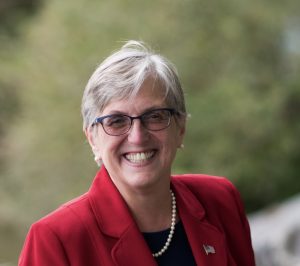Kent Town Board Sets Public Hearing for Marijuana Regulations

The Kent Town Board will likely move to ban retail marijuana dispensaries within the community but first plan to hold a hearing next month to see where residents stand on the issue.
With Gov. Andrew Cuomo legalizing recreational marijuana earlier this year, the new state law allows cities, towns, and villages the choice to opt-out of the legislation and prohibit the sale of the drug within its borders by Dec. 31. Municipalities can also regulate where and when marijuana can be sold by adopting new zoning laws.
However, a municipality that votes to opt-out can repeal the law if the voting body later changes their mind.
Supervisor Maureen Fleming said while she doesn’t know how the sale of marijuana would impact crime or local business, it’s a huge concern among board members whether or not to allow dispensaries. She suggested a survey be sent out to the community and a public hearing be had before the board makes any decisions.
“I’ve pretty much made up my mind pretty strongly against this no matter what a survey or public opinion says,” Councilman Chris Ruthven said at the May 18 Town Board meeting. “I’m going on my own personal preference on this one and am going to vote to opt-out of this. There’s no public pressure that can change my mind on this.”
Councilman Paul Denbaum noted he was also leaning toward opting out, explaining that the revenue generated from the sale of marijuana wouldn’t make an impact on the towns budget.
The state plans to establish an Office of Cannabis Management to enforce the new set of marijuana regulations. Cuomo has projected New York State will raise $350 million in annual tax collections from adult-use cannabis.
The state excise tax on the retail sale of marijuana will be 9 percent and the local excise will be 4 percent. Municipalities that allow marijuana shops to open will get 75 percent of the local tax revenue, according to the new law. Counties will receive 25 percent of the local tax.
For every $1 million worth of marijuana sold in Putnam County, the municipalities win which it was sold would split $30,000. However, if a local government votes to opt-out of having retail dispensaries within their area, they will not receive tax revenue from it.
“With our budget well into the millions, you would have to have dispensaries doing millions upon millions of dollars, but you would have to see massive sales to have an actual impact on the budget,” Denbaum said. “The sales tax sounds great, but we probably will end up putting more money in fund balance that we don’t spend in any given budget year than we would make off of taxes in this law.”
Since the law was passed in March, County Executive MaryEllen Odell has urged municipal leaders to “think long and hard before allowing the sale of marijuana within their borders,” noting county government leaders’ hands are tied.
Odell has previously called the new law a “cash grab” by the state at the expense of the health and safety of local communities solely to close a budget gap.
“I understand that the state wants to generate a new source of revenue because of past mismanagement of the NYS budget, but at what price? The average person will look at the legalization of marijuana and say, ‘This does not impact me.’ But it is naïve to think that use among our young people will not increase,” Odell said in April. “Will our roads be safer? It’s like your parents always told you, ‘Just because your friends are doing it, doesn’t make it right.’”
Police Chief Kevin Owens advised the board that a marijuana dispensary would not be beneficial to the town. While he asserted the sale of weed likely wouldn’t generate millions of dollars, he said there’s no scientific way to test for marijuana use in motorists similar to liquor with a breathalyzer.
“The more available we make it for adults, the more available it’s going to be for young people and the more issues we’ll have, whether it’s driving or people acting out,” Owens said. “It’s legal, we’re good with that, but (dispensaries) will cause problems for our community, I think.”
While board members shared their dissent for the state law, Councilwoman Jaime McGlasson said she was against the law until an argument was made by a resident advocating for those who use cannabis for medicinal purposes. She said marijuana use isn’t only limited to those getting “stoned” but those who need it for medical reasons.
Councilman William Heustis advised McGlasson to “do your homework” prior to the June 1 public hearing, citing the topic could result in a heated debate.
“I think what we have to keep in mind is that we’re not changing the law,” Fleming said. “It’s already legal, so if we don’t have a dispensary here, it doesn’t mean that people in the Town of Kent aren’t going to be smoking pot or doing these things that are directly related to legalization.”
